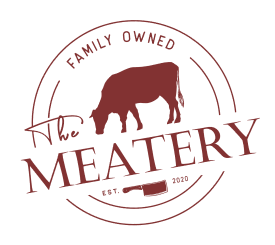Origins and Rich History of Wagyu
The story of Wagyu beef traces back centuries, originating in isolated regions of Japan. The term "Wagyu" literally translates to "Japanese cow" and encompasses several breeds, notably Japanese Black, Brown, Polled, and Shorthorn.
Historically, Wagyu cattle held revered status in Japan, used not only for their meat but also as draft animals in agricultural settings and even in religious ceremonies. The beef itself was historically reserved for royalty and esteemed warriors like the Samurai, symbolizing luxury, exclusivity, and high status.
It wasn't until late in the 20th century that Wagyu steaks and beef began garnering global attention. International trade expansion and the global spread of Japanese culinary traditions have significantly increased Wagyu’s popularity, captivating chefs and food lovers worldwide.
What Do Wagyu Cows Eat?
The diet of Wagyu cattle significantly influences their superior meat quality. Producers meticulously manage feeding practices to promote optimal marbling. The cattle's specialized diet usually includes a balanced mix of grains such as wheat, barley, corn, and rice, all chosen specifically to enhance marbling and flavor.
Some Wagyu producers incorporate fermented ingredients like beer, sake lees, or probiotics into the cattle's diet. This practice is believed to further refine flavor profiles and increase tenderness, reflecting a commitment to achieving culinary excellence. There's even folklore about Wagyu cattle receiving massages and being serenaded with music—techniques employed by some ranchers aiming to minimize stress and improve meat quality, although these practices vary widely in reality.
How Are Wagyu Cows Raised?
The raising process of Wagyu cattle involves considerable care, rooted deeply in Japanese tradition. From birth, Wagyu calves are nurtured in low-stress, comfortable environments with ample space, clean water, and shelter. Producers place significant emphasis on creating a tranquil atmosphere to ensure superior meat quality.
Throughout their growth, Wagyu cattle receive specialized attention and meticulously planned diets. The careful management extends even to their emotional wellbeing, ensuring that stress levels remain minimal, as stress adversely affects marbling and overall meat quality. This detailed attention to cattle welfare and nutrition directly translates to the exceptional taste and tenderness synonymous with Wagyu beef.
Sustainability and Ethics of Wagyu Beef
In recent years, sustainability and ethical practices in beef production have gained significant attention. Wagyu producers often adopt responsible farming methods, emphasizing animal welfare, environmentally conscious farming practices, and transparent sourcing. The attention to humane practices, environmental responsibility, and quality over quantity distinguishes many Wagyu farms, appealing to conscientious consumers.
While Wagyu beef is undeniably a luxury item, conscious sourcing practices add an extra layer of appeal for consumers who prioritize sustainability and animal welfare alongside culinary enjoyment.
Wagyu vs. Other Beef Varieties
When comparing Wagyu steaks with conventional beef steak varieties, such as Angus, Hereford, or even grass-fed options, the differences are significant. Wagyu cattle, originally from Japan, possess unique genetics that allow them to develop higher levels of intramuscular fat compared to other breeds.
Conventional beef, despite high quality, typically lacks the extensive marbling characteristic of Wagyu. This often results in meat that, while delicious, does not match Wagyu's distinctive texture or flavorful richness. High-quality Angus steaks, though tender and flavorful, still do not achieve the buttery, velvety mouthfeel unique to Wagyu beef.
Additionally, Wagyu cattle are raised under strict guidelines, which often include specialized diets and meticulous care routines designed to minimize stress. These exacting practices further elevate Wagyu's texture, tenderness, and flavor, distinguishing it clearly from other beef options.
Is Wagyu Beef Worth the Price?
Wagyu beef is often considered the pinnacle of beef quality, and for good reason. This luxurious meat is renowned globally for its unmatched tenderness, exceptional marbling, and deeply rich, buttery flavor. However, the high price tag associated with Wagyu steaks often raises a common question: Is it really worth the splurge?
To genuinely understand the value of Wagyu beef, it's essential to explore the meticulous processes behind its premium status. Wagyu cattle are raised according to centuries-old Japanese traditions, emphasizing outstanding genetics, specialized feeding practices, and stress-free living conditions. The result is a unique intramuscular fat distribution, called marbling, that delivers the beef's distinctive melt-in-your-mouth texture and exquisite flavor profile.
While the cost of Wagyu can indeed be substantial, many culinary enthusiasts and experts agree that the experience provided is unmatched. The rich, buttery flavor, combined with the tenderness and juiciness, creates an indulgent dining experience that justifies its luxury status. For those who appreciate life's finer culinary experiences, Wagyu beef is unquestionably considered a worthwhile investment.
Cooking and Enjoying Wagyu Steak
Cooking Wagyu steak properly is key to fully experiencing its extraordinary qualities. Because Wagyu is naturally flavorful and tender, it requires minimal preparation. The ideal approach is to enhance, not mask, the beef's rich, buttery flavor.
For optimal taste, many chefs recommend simple seasoning with salt and pepper, followed by quick grilling or pan-searing at high heat to create a caramelized crust while maintaining a tender, juicy interior. Using additional enhancements such as truffle-infused oils, compound butter, or fresh herbs can provide complementary flavors without overpowering the natural taste of Wagyu.
Best Side Dishes and Pairings for Wagyu Steak
Selecting the right side dishes and beverages can elevate your Wagyu dining experience significantly. Due to its rich and buttery character, Wagyu pairs beautifully with simple, elegant sides. Popular choices include roasted or grilled vegetables such as asparagus, Brussels sprouts, zucchini, or earthy mushrooms.
Potato-based dishes, including creamy mashed potatoes, crispy roasted potatoes, or a classic gratin, provide delightful textural contrasts and complement Wagyu's luxurious taste. Moreover, bright, acidic elements such as lightly dressed green salads or pickled vegetables help balance the richness.
As for beverages, full-bodied red wines like Cabernet Sauvignon, Malbec, or Merlot beautifully complement Wagyu's richness, enhancing the steak's decadent flavors. Alternatively, craft beers or even sake can provide interesting, complementary flavor profiles, offering delightful contrasts and complexity.
Final Thoughts: Is Wagyu Beef Truly Worth the Splurge?
In conclusion, Wagyu steak is undoubtedly luxurious and often priced accordingly. Yet, its unique combination of buttery richness, extraordinary marbling, meticulous production methods, and deep cultural heritage justify its reputation and cost for many.
Whether Wagyu beef is "worth it" largely depends on personal preference and priorities. However, for those seeking an unparalleled culinary experience, exceptional quality, and an understanding of the artistry behind the beef, Wagyu steak remains a valuable and memorable indulgence.









